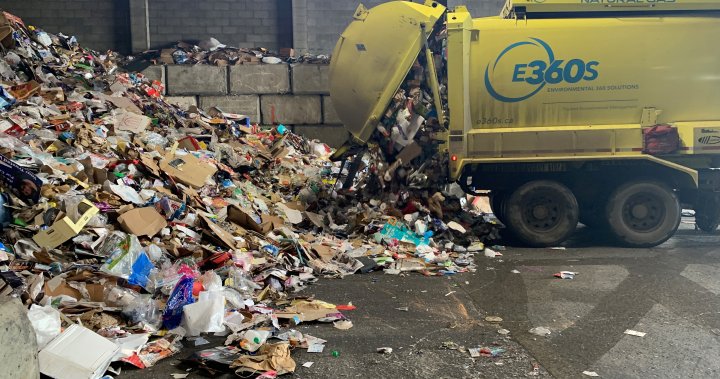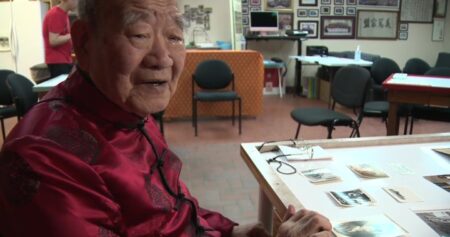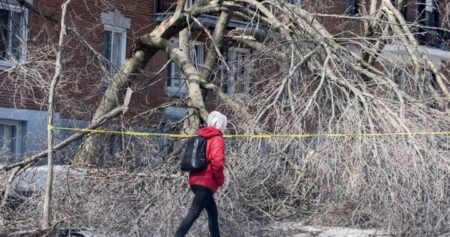Smart cameras and artificial intelligence technology reduced contamination in Kelowna, B.C., area curbside recycling bins by 23 per cent, Central Okanagan Regional District staff say.
The change, according to a district report, is being attributed to the new truck-mounted smart cameras with AI-based visual recognition and GPS identifying and tracking unaccepted items.
The system is trained to recognize problematic items including plastic bags, garbage, yard waste and styrofoam, and lets residents know about it in real time.
The five-month pilot, which ran from October through March, was a partnership between the Regional District of Central Okanagan, member municipalities, Recycle BC, Environmental 360 Solutions and Prairie Robotics.
It resulted in 8,777 postcards mailed out during the pilot. The special technology was added to four recycling trucks at a cost of $68,000, half of which was paid for by Recycle BC.
In addition to a 23-per cent reduction in contaminants, the report also indicated that most Central Okanagan residents understand what’s supposed to go in the blue bin.
Almost half of all residents recycle correctly with 35.6 per cent of residents changing their behaviour after receiving a warning postcard.
The email you need for the day’s
top news stories from Canada and around the world.
The findings also showed that 6.7 per cent of households are considered “repeat offenders,” and are responsible for a third of the recycling contamination.
The top three contaminants identified in the pilot were flexible plastics, such as blue bags, wrappers, grocery bags, chip bags, styrofoam and wrappers that belong at the depot, and garbage.
The RDCO’s supervisor of solid waste services, Cynthia Coates, says the technology can cover many more homes than manual inspections and provide targeted education where it is most needed.
Moving forward, the pilot data will help waste ambassadors target those high-contamination areas with physical cart checking.
“The good news is the pilot has shown a huge percentage of our residents are recycling correctly, and this direct approach to recycling education can really help improve the quality of recycling by providing residents timely personalized feedback based on their actual recycling habits,” Coates said.
© 2024 Global News, a division of Corus Entertainment Inc.
Read the full article here











